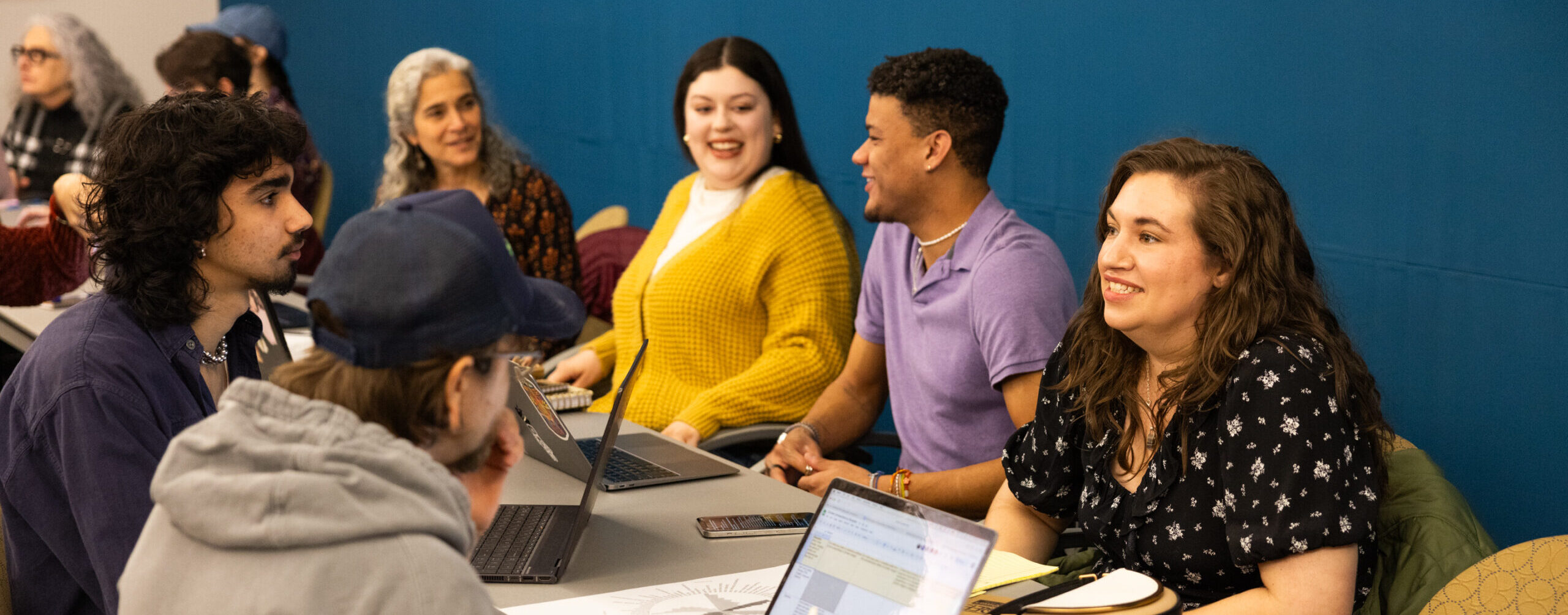What is ‘Pathways to Resilience’?

The Pathways to Resilience initiative reflects Appalachian State University’s unwavering commitment to educating students who are career-ready when they graduate. These students are trailblazers who will apply their comprehensive, climate-informed education across a diverse array of professional fields to foster a sustainable, resilient and regenerative future. This initiative is a continuation of the university’s longstanding dedication to these priorities, and these actions speak to a profound understanding of the pivotal role that education plays in the overall economic, social and environmental well-being of the people of North Carolina and beyond.
Through the Pathways to Resilience initiative, we are strengthening our ability to envision and implement positive climate action in our professions and communities. Positive climate actions help us to reduce and adapt to the problems of climate change in ways that promote equity and resilience. Below we expand on some of the foundational ideas of this initiative—responses, agency and collaboration.
Read the one-page Pathways to Resilience Executive Summary here.
Responses
In today’s global landscape, opportunities to do meaningful work in the world have never been greater. Climate change, like many other complex challenges, does not have a direct avenue to complete erradication. Responding well to climate change will involve long-term management of many interconnected systems and problems. In this context, it is imperative to equip our students with the skills, knowledge, and perspectives necessary to navigate and respond effectively to the challenges posed by climate change, regardless of their chosen career path. Whether they aspire to work in the arts, health professions, technology, social work, agriculture, business, education, public administration, or any other field, our goal is to empower them to contribute meaningfully to climate resilience and sustainability efforts.
Agency
Climate change has risen to the level of crisis and the effects of climate change are creating anxiety. Our goal is to provide our App State community with the knowledge and skills necessary to transform climate concern into positive action. We need an understanding not just of the problems of climate change, but also of the myriad strategies that already exist to reduce the harms of climate disruption and improve the well-being and resilience of communities, from local to global. At App State, we are intentionally emphasizing action and agency in climate literacy education both because it is what our students desire and it is also what our state, country and world need.
Collaboration
Given the enormity and complexity of climate change, responding well necessarily requires working in teams and communities made up of diverse kinds of expertise, perspectives and life experiences. “Responding well to climate change may end up being the biggest and most important group project that humanity undertakes together,” says Shea Tuberty, the Director of the Pathways to Resilience initiative. At App State we are emphasizing a whole community approach in our climate literacy education, which is necessary for effective collaboration in climate responses. In doing so, we foster a culture of collective action and innovation, laying the groundwork for a more sustainable and resilient future for all.
Take a look at our resource page for students more information about our climate literacy education activities.
